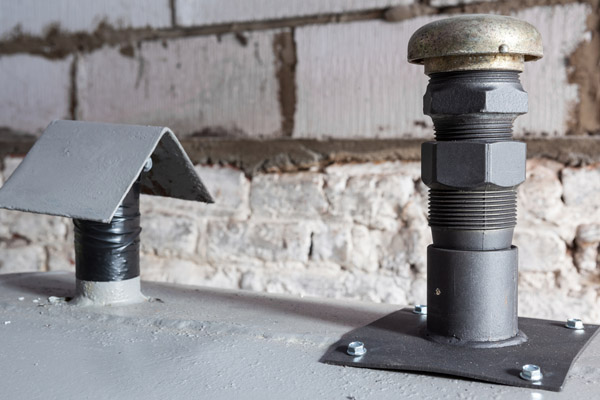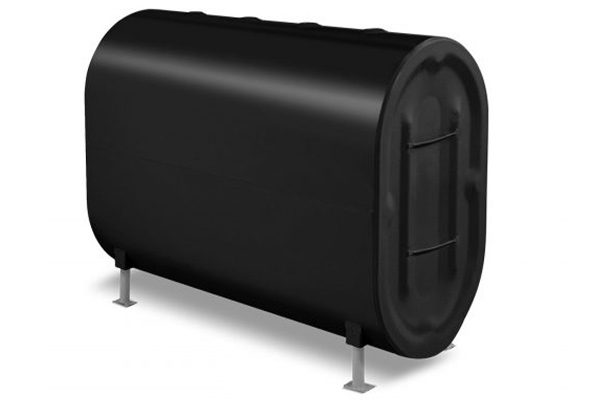Above Ground Vs. Underground Oil Tanks: What To Consider

Heating oil is a popular fuel for domestic and commercial heating applications in the United States. As a matter of fact, from 2019 to 2020, fuel oil was used by more than five million U.S. homes as their primary heating fuel during the winter. This data was per the U.S. Energy Information Administration (EIA).
If you are using heating oil or planning to, you might be wondering about proper oil storage using an oil tank. You can choose between an above or underground oil tank. This is an important decision because having the right oil tank means less hassle for you, and you save more money from future costs. This article will help you make a wise and informed decision when choosing between an above ground vs. underground oil tank.
Oil Tank Comparison: Above Vs. Below Ground Oil Tanks
Read on to learn more about above versus underground oil tanks.
Position Of Heating Oil Tanks
As their names suggest, underground and aboveground tanks are installed below and above the ground surface, respectively. Aboveground tanks are usually set against a wall. These are the two most commonly used tanks for houses constructed in the 1660s because heating oil was widely used at the time. Aboveground tanks can also be installed inside or outside your home, depending on where you want them.
Heating Oil Tank Capacity
 Aboveground and underground oil tanks are available in different oil tank sizes. This way, you can have one which suits your home’s specific needs. Underground tanks typically come in larger sizes than aboveground ones. A standard aboveground oil tank for residential use has a 275-gallon capacity, although it can range from 160 to 400 gallons. On the other hand, belowground tanks can have a capacity of as high as 1,000 gallons. Bear in mind that oil tanks for commercial use come in even larger sizes.
Aboveground and underground oil tanks are available in different oil tank sizes. This way, you can have one which suits your home’s specific needs. Underground tanks typically come in larger sizes than aboveground ones. A standard aboveground oil tank for residential use has a 275-gallon capacity, although it can range from 160 to 400 gallons. On the other hand, belowground tanks can have a capacity of as high as 1,000 gallons. Bear in mind that oil tanks for commercial use come in even larger sizes.
Oil Tank Safety
The underground placement of underground oil tanks means that accidents rarely happen. Therefore, they are a safe and durable option. This kind of tank is not exposed to extreme weather conditions and other issues that their aboveground counterparts are subjected to. However, the challenge comes when your underground oil tank experiences a problem as it can be expensive and difficult to repair.
Aboveground tanks are easier to gain access to. However, it also means they are more vulnerable to strong winds, snow, and fallen branches, among others. These perils make them more prone to wear and tear than underground oil tanks. Moreover, oil tank theft is also on the rise. Experts recommend that aboveground tanks be placed inside a secondary containment system within your field of vision from inside the house. This is for added security and environmental protection.
Most problems with aboveground and underground tanks can be avoided. Take note that heating oil users should replace their oil tank, whether it’s an aboveground or underground one, when it is nearly at the end of its lifespan.
Convenience & Heating Oil Tanks
Underground oil tanks generally pose a challenge when it comes to accessing them. However, these oil tanks help save space around your house. Aboveground oil tanks can be an eyesore to some homeowners. They occupy large areas in your yard, so it can be a hassle to mow the lawn or conduct landscaping tasks. Having an underground oil tank means you don’t have to deal with these problems. You can easily maintain your yard and enhance your home’s aesthetics without inconveniences.
Other Factors to Consider When Choosing An Oil Tank
You might have noticed that no better option is available between these two types of oil tanks. It boils down to your preference because underground and aboveground oil tanks each have their advantages and disadvantages. To help you make a wise and informed decision, here are other factors to look into when choosing an oil tank for your home:
- Material: The two usual materials used in oil tank manufacturing are steel and fiberglass. Steel is strong and durable, but it tends to rust and corrode. This, in turn, will lead to heating oil contamination, among other problems. Fiberglass is safer because there is no chance for rust or corrosion to happen. You can also buy an oil tank made of a combination of steel and fiberglass. Consider these when buying an aboveground tank as they are exposed to a variety of harsh conditions. Consult qualified professionals, like R.F. Ohl, to assist you. An expert can help you select the best tank that can weather through extreme conditions.
- Shape: Oil tanks are either shaped like a cylinder or a capsule. A capsule-shaped tank can be placed vertically or horizontally, while cylindrical tanks can only be positioned horizontally. Based on this, choose the shape that will best fit the space you have above the ground.
- Cost: The price of a tank differs depending on the manufacturer. With this in mind, compare the sellers’ prices so you can choose one that best suits your budget.
- Warranty: Having an extended warranty for your oil tank means you receive free or inexpensive inspections and repairs within the warranty period. This will help you save money in the long run.
It is essential that you consult a dependable oil supplier when selecting the right tank for your home. This way, you can be sure that your heating oil storage needs are met. If you live in Northeast Pennsylvania, make sure to call R.F. Ohl to book a consultation.
Conclusion
Consider the factors listed in this article when deliberating between an aboveground or underground storage tank. Make sure to contact the professional technicians at R.F. Ohl when you are ready to have an oil tank installed in your home.
Call R.F. Ohl For Superior Home Comfort Solutions

If you need to have heating oil delivered to your house, call R.F. Ohl. Our prices for quality discounted heating oil are the best. We also offer efficient heating solutions for your family and home.
The expert technicians on our team are equipped to handle any HVAC repair or maintenance. Contact us to hear about our various services. We can assist by answering your questions and concerns. For more information about our efficient HVAC services or oil deliveries, call R.F. Ohl today!
Call us today to learn more. Click here or call us at (610) 377-1098 to contact us today!
